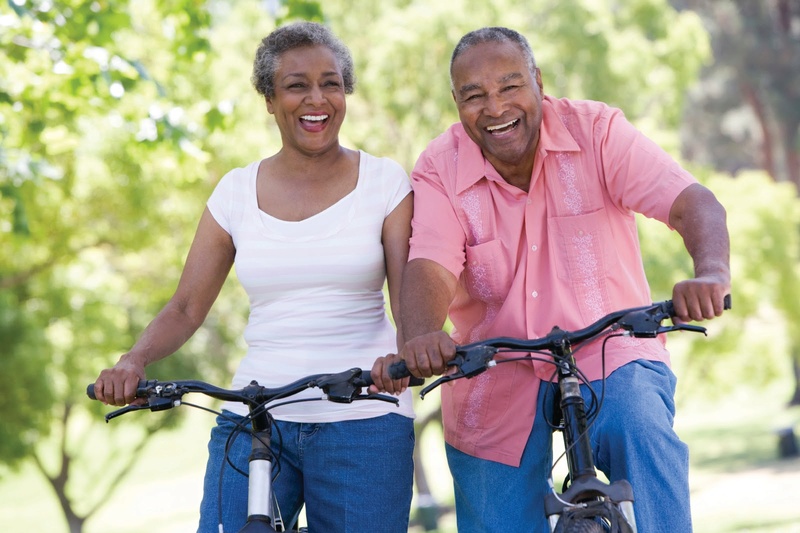
There are more good reasons for cycling in older age: cycling involves smooth, regular movement: it doesn't put big stresses and strains on your body. Cycling four miles daily reduces the risk of coronary heart disease by 50 per cent. It's good aerobic exercise, yet puts no load-bearing strain on joints or muscles – good news if you are arthritic, a bit overweight or generally unfit. Cycling for half an hour regularly should help shed any extra pounds. Regular cycling improves lung function: useful if you suffer from bronchitis or asthma.
If you have not cycled since your younger days, you may not be aware of just how light and efficient modern bicycles can be. The wonderfully diverse range of cycle types means that there's a bike to suit everyone, whatever their age. With innovations and advances in technology, manufacturers continually strive to offer improvements in terms of comfort, reliability and ease of use. There are puncture proof tyres, exceptionally comfortable saddles, and chain guards and mudguards to keep you clean. Compared to your heavy old all-steel roadster, today's lightweight bikes are easy to lift and agile in hilly terrain.
If you're buying a second-hand bike or you have an old bike that's been gathering dust, consider having it serviced at a bike shop to ensure it's roadworthy.
If you're buying a new bike, there are lots of models to choose from. Hybrids, road bikes and mountain bikes are most popular. A bike shop can advise you on the correct frame size and help you select a bike to suit your budget and the type of cycling you want to do.
There are many bikes available for people with disabilities. The two main providers of specialist bikes are Wheels for All and CTC.
For most people, cycling is a safe and effective form of exercise. If you have any health concerns or an existing medical problem, see your GP before you start.
Cycling safely
practise in a safe environment
wear a helmet
be seen and heard
check your bike
be alert and plan your route
always follow the Highway Code
If you haven't cycled much before or you're out of the habit of cycling, find yourself a traffic-free area to start off in, such as your local park.
Practise riding single-handed so you can make hand signals, and get comfortable looking over both shoulders to improve your visual awareness.
Before you start cycling in traffic, check the Highway Code for up-to-date rules and regulations for cyclists.
Health benefits
Regular cycling can reduce the risk of chronic illnesses such as heart disease, type 2 diabetes and stroke. It can also boost your mood and keep your weight under control.
For health benefits, adults and older adults should do at least 2 hours and 30 minutes (150 minutes) of moderate-intensity activity each week.
Children and young people should do at least an hour (60 minutes) of moderate to vigorous intensity activity every day.
A 30-minute ride will count towards your recommended weekly activity target.


